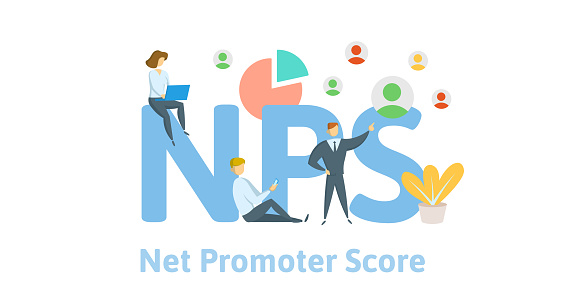
What is a Net Promoter Score (NPS)?
One of the most commonly asked Net Promoter Score (NPS) questions is, what is it? NPS is a measurement system used to gauge customer loyalty, but the same methodology can be used to evaluate employee satisfaction with their employer. It was a concept that was introduced by Fred Reichheld in 2003 and has since been used by thousands of companies across the globe. A company’s NPS is determined by asking customers one question:
“How likely are you to recommend our company/product/service to your friends and colleagues?”
How is NPS calculated?
Customers are asked to rate the company on a scale of 0 to 10 (0 for the lowest satisfaction and 10 for the highest satisfaction). The fundamental principle is that customers can be divided into three categories: Promoters, Passives, and Detractors. Based on their response on a 0-to-10 point rating scale, the customer is categorized as follows:
- Promoter (score 9-10) are loyal enthusiasts who will keep buying and refer others, fueling growth.
- Passive (score 7-8) are satisfied but unenthusiastic customers who are vulnerable to competitive offerings.
- Detractor (score 0-6) are unhappy customers who can damage your brand and impede growth through negative word-of-mouth.
To calculate your company’s NPS, take the percentage of customers who are Promoters and subtract the percentage who are Detractors.
What is considered a good score?
Research indicates that the average NPS is between 10 to 15 percent (anything above 15 percent is considered above average). To identify an ideal NPS for your business, you should look to benchmark studies comparing scores within your industry and against direct and indirect competitors. A few select companies have achieved a NPS of at least 50 percent which Reichheld defines as “world class” and include businesses such as Apple and Google.
Can a score be improved?
It’s great to know how your company scores, but you can’t really do anything to facilitate change if you don’t know why a customer is or is not likely to recommend. Consider following up the initial question with an open-ended question such as, “Why did you choose that rating for us?” or “What experiences did you have with us to shaped that choice?” Use questions that solicit feedback from your customers so you can better understand the reasons why they rated your business the way they did.
Bruce Temkin, Customer Experience Professionals Association Chairperson, said “Companies must ask the right questions of the right clients at the right time so they can understand why customers are Promoters, Detractors or Passives. Understanding those reasons is the first step toward a higher NPS –and more loyal customers.” You can only begin to improve your business (and your NPS) when you understand how your customers perceive it.
Have more questions about net promoter score or need help conducting a survey to determine your company’s NPS or with your marketing strategy? Contact Launch Marketing today! Be sure to follow us on Twitter or like us on Facebook to keep up with the latest B2B marketing tips and trends.
There are no comments